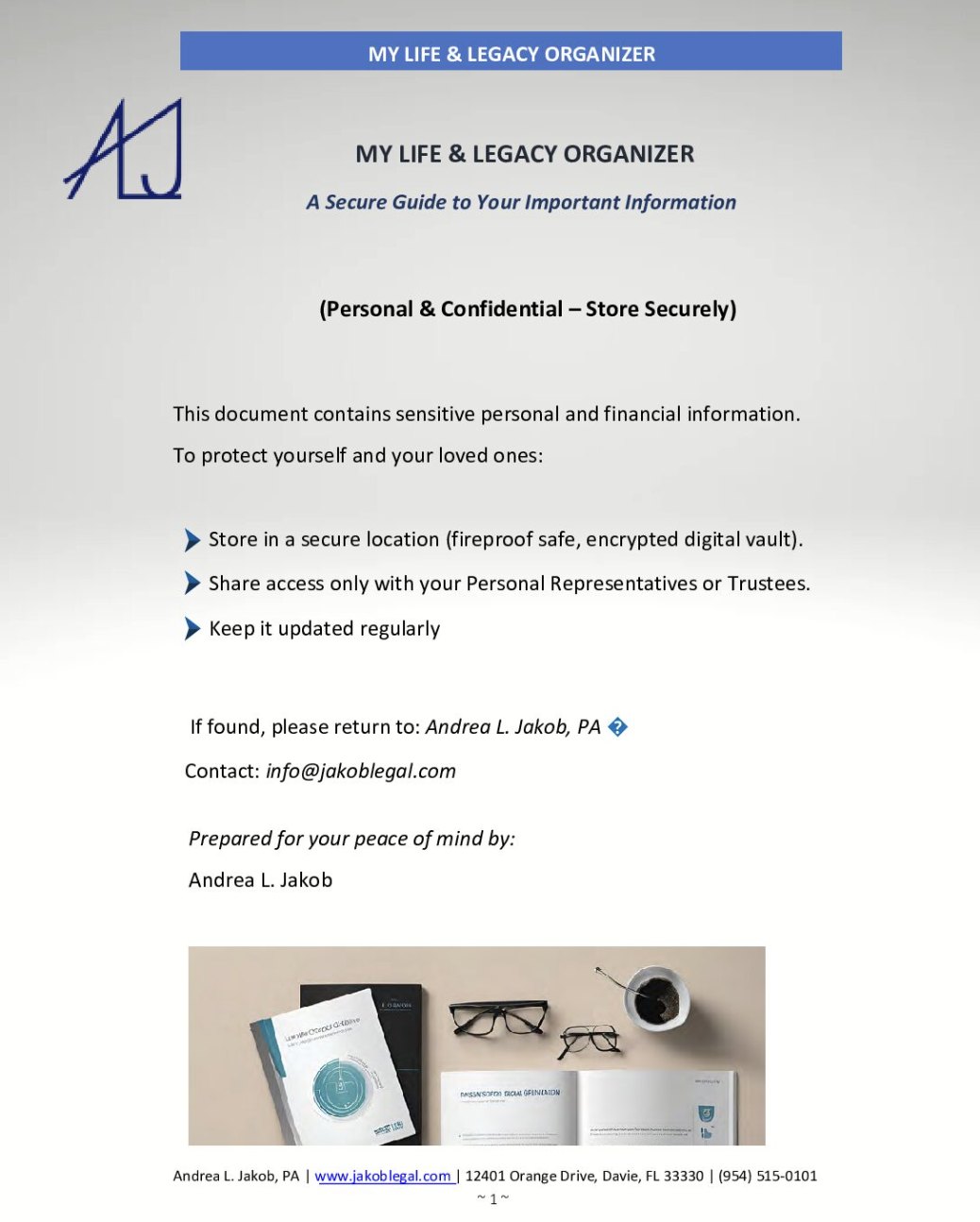Contrary to popular belief, Estate Planning isn’t about who gets your stuff when you die. Yes, many times we often worry about what will happen to our assets and wonder who will get them. While this question is not fun to think about, it is an essential one to ask yourself at different points in life. Only by having an estate plan can you rest assured that, during your life if you become incapacitated, temporarily or even permanently, and then even after your passing, your wishes are respected and your loved ones are protected. Not just your “stuff.”
So, when should you start creating an estate plan? Short answer: Right away. Long answer: Read our comprehensive guide below.
When Does Estate Planning Become A Necessity?
According to many financial advisors, you should start creating an estate plan as soon as you turn 18 years old, and keep it updated every three to five years. This is because when you turn 18, you take legal responsibility for your finances, your healthcare, and your power of attorney.
It is normal and understandable for young people to underestimate the need to have an Estate Plan. However, the following life milestones warrant the need to create an Estate Plan immediately:
- You just bought a new home. When you purchase your first home or any other property, you should have an estate plan. This will help you avoid a lengthy probate process if you die without a will (intestate).
- You have assets in a checking or savings account. Once you start saving money, you automatically need to designate who will receive those funds when you die.
- You get married. If you decide to combine assets with your spouse, it is essential to determine what will happen to the shared assets in case of the death of one spouse.
- You have children. Having children is one of the most natural triggers of estate planning. When you have your first child, you should start thinking about guardianship or the financial security of your children in case you lose your life unexpectedly.
- When your children get married or have your grandchildren!
Why Should You Create An Estate Plan Early In Life?
As mentioned, estate planning is for everyone, not just the wealthy. There are many reasons you should start estate planning now, in addition to the ones mentioned above. Here are some other notable reasons:
- You Can Plan for Your Personal Needs
While most people think estate planning is only needed when they die, they forget to consider what will happen if something tragic happens to them. You should think ahead about what will happen to you and your property if you are unable to make your own decisions due to an injury or other issue.
After evaluating your cash flow, think about the insurance you may need in the event you are not able to provide for yourself. While at it, you should consider appointing a healthcare proxy who will make healthcare and financial decisions on your behalf if you are unable to speak for yourself.
- You Can Decide How Your Estate Is Distributed
If you die intestate in Florida (without a will), the court will decide who inherits your property. This process can be time-consuming and financially draining to your loved ones. It is worth noting that your children, who will be grieving your loss at the time, may be the ones who suffer the most.
Having proper documentation beforehand will save your loved ones a lot of time and mental anguish. Doing so will also ensure that your assets are distributed the way you intended. If applicable, you should constantly review the beneficiaries in your investment and life insurance policies to make sure they are updated.
- You Can Efficiently Manage Transfer Taxes
If you have accumulated a substantial amount of wealth over time and you intend to transfer this to your loved ones upon your death, starting estate planning early can help you achieve this in the most tax-efficient way possible.
When passing along wealth to the next generation, there are methods to do this in a tax-efficient manner to help manage generation-skipping transfer tax, gift tax, and estate tax.
- You Can Adequately Plan for Your Philanthropic Goals
Legacy planning is an important part of the estate planning process. This enables you to determine how you want to be remembered when you die. You may decide to start a foundation in your name or be part of a charity organization to support a cause that is dear to you. Therefore, the sooner you start planning, the easier it will be to involve your loved ones in the process and make your intentions known to everyone.
When Should Your Estate Plan Be Updated?
Anytime you hit a life milestone that either increases your wealth or affects how you want your assets distributed, you should update your will. Examples of such changes are:
- Purchase of new property
- Death of a loved one
- Getting divorced or remarried
- Having more children, among many other changes.
A good rule of thumb is to have your will updated every three to five years.
The Implications Of Not Having An Estate Plan
The following are the main disadvantages of not having an estate plan before you die:
- You will leave the courts to decide what will happen to your property and assets.
- You will not get to decide who will execute your will.
- You will not get to appoint a trustee (if you have trusts created).
- You will not select a trusted guardian for your children.
- Your beneficiaries may receive everything at once. If a young person (anyone under your current age) receives their inheritance at once, the issues could be dramatic. They may spend everything unwisely, think running off to Las Vegas, buying a Lamborghini. Or, your money could go to a potential ex-spouse or creditor of your child. Tax problems aside, an inheritance may potentially affect the recipient’s eligibility for government assistance.
Our Florida Estate Planning Team Can Help
Having an estate plan is the most important thing you can do to ensure that both your future and that of your family are protected. Estate planning can be a very complicated and emotionally-draining process. However, the earlier you get started, the better prepared you will be for any unexpected life changes.
Having a will can go a long way in ensuring your wishes are respected even after your death. Because of the legal complexities of the process, it’s essential to have an experienced estate planning attorney to help you craft your plan. The team here at JakobLegal is ready to help – call us today or fill out our online form to schedule a consultation and take the next step in helping to protect your family!

